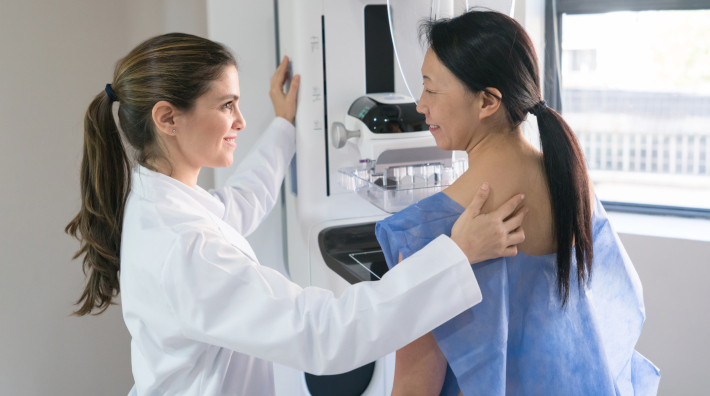Cancer News and Stories
Our team of experts brings you cancer-related news, features, and survivor stories.
For the latest news about research we conduct and fund, see ACS Research News.
Filtering by:
Breast CancerFive Ways to Help Reduce Your Breast Cancer Risk
Published on: June 28, 2023
Although there is no sure way to prevent breast cancer, there are several things you can do that may lower your likelihood of getting it.
Breast Cancer Symptoms: What You Need to Know
Published on: September 22, 2020
Finding breast cancer as early as possible gives you a better chance of successful treatment. An important way to keep up with your breast health is to be aware of how your breasts normally look and feel, and know what changes to look for.
If You’re Called Back After a Mammogram
Published on: September 22, 2020
Getting called back after a mammogram doesn’t always mean you have cancer. But it can be scary to wait and wonder if there’s something wrong. Learn what to expect if this happens to you.
FDA Approves Trodelvy (Sacituzumab govitecan-hziy) for Triple Negative Breast Cancer
Published on: April 29, 2020
The US Food and Drug Administration (FDA) approved a new type of therapy for triple-negative breast cancer that has spread to other parts of the body and hasn’t responded to other treatments.
Long-term Breast Cancer Survivor Reflects on Life After 50
Published on: March 16, 2020
Now that she’s in her 50s, Pam Matthews has more aches, pains, and other physical problems. She blames some of this on age, and some of it on long-term side effects from breast cancer treatment she received in her 30s.
Study Finds Antioxidants Risky During Breast Cancer Chemotherapy
Published on: January 23, 2020
Taking certain supplements while undergoing chemotherapy for breast cancer may do more harm than good. A small study found that patients who took antioxidants had higher chances of cancer recurrence and death.
Study Finds Possible Link Between Hair Dye, Straighteners, and Breast Cancer
Published on: December 6, 2019
An observational study from researchers at the National Institute of Health (NIH) found that women who used permanent hair dye and chemical hair straighteners had a higher risk of breast cancer than women who didn’t use them.
Breast Cancer Survivor Advocates for Smoke-Free Housing
Published on: October 8, 2019
Cathleen Reese has lived in tax credit housing in Hamilton, Montana for 4 years. Although smoking in her apartment building is not allowed, Reese says she breathes in secondhand smoke every day from her neighbors who don’t obey the rules.







